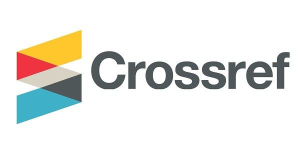Teachers’ Perspectives on Task-Based Language Teaching: A Case Study at International Islamic University Malaysia
A CASE STUDY
DOI:
https://doi.org/10.31436/ijes.v5i1.159Abstract
ABSTRACT
The term task-based language teaching (TBLT) is widely used in the context of The term task-based language teaching (TBLT) is widely used in the context of second language acquisition in terms of a curriculum which promotes actual language use. However, little research has been conducted in Malaysia regarding TBLT and its implicit method. This study, therefore, aims to explore and research the perceptions of teachers towards TBLT at the International Islamic University Malaysia (IIUM). The research aims to determine the level of awareness, understanding, and the perception that teachers have towards this method, as well as whether they employ it in their classrooms or not. The study employs a qualitative methodology, namely ‘case study’. The data
collection instruments consist of interviews of three randomly selected instructors at CELPAD, one for each level ranging from level 4-6. The overall findings show that the CELPAD teachers possess a clear understanding of TBLT, agreeing that TBLT is beneficial. However, they are still unsure of the advantages of using it in the classroom. Furthermore, there is some measure of fear in adopting task-based language teaching fully
primarily as a result of the problems they face pertaining to the end of semester assessment; the English Placement Test. As a result, it is found that some teachers use a mixed approach of both TBLT and traditional teacher-centered approach. second language acquisition in terms of a curriculum which promotes actual language use. However, little research has been conducted in Malaysia regarding TBLT and its implicit
method. This study, therefore, aims to explore and research the perceptions of CELPAD teachers towards TBLT, at the International Islamic University Malaysia (IIUM). The research aims to determine the level of awareness, understanding, and the perception that teachers have towards this method, as well as whether they employ it in their classrooms or not. The study employs a qualitative methodology, namely ‘case study’. The data
collection instruments consist of interviews of three randomly selected instructors at CELPAD, one for each level ranging from level 4-6. The overall findings show that the CELPAD teachers possess a clear understanding of TBLT, agreeing that TBLT is beneficial. However, they are still unsure of the advantages of using it in the classroom. Furthermore, there is some measure of fear in adopting task-based language teaching fully
primarily as a result of the problems they face pertaining to the end of semester assessment; the English Placement Test. As a result, it is found that some teachers use a mixed approach of both TBLT and traditional teacher-centered approach.
Metrics
Downloads
Published
How to Cite
Issue
Section
License
The Journal will own copyright to all published works and have the right of first publication, both in print and online, unless other arrangements are made with the Editors in advance. It is the author`s responsibility to ensure that where copyright materials are included within an article the permission of the copyright holder has been obtained beforehand.






















